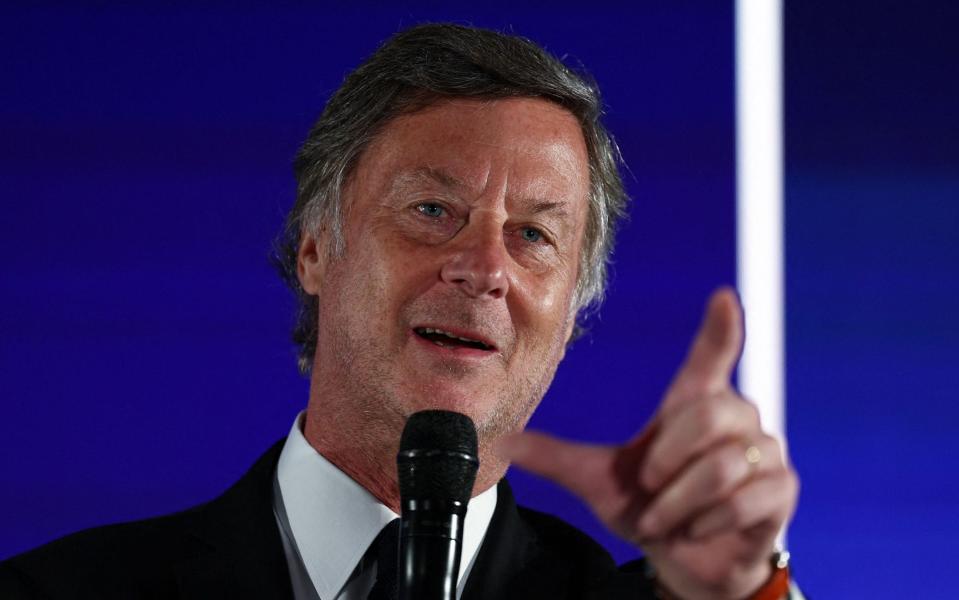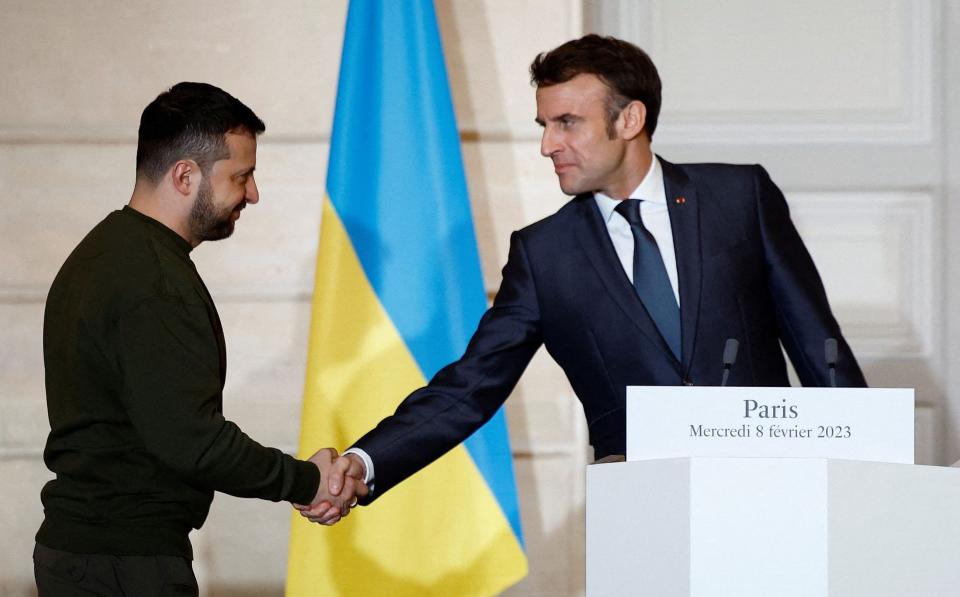French owner of Orient Express claims pulling out of Russia is ‘not an option’

The chief executive of Accor, the French owner of the Orient Express and Novotel hotels, has claimed pulling out of Russia is “not an option” unless he is forced to by more stringent sanctions.
Sébastien Bazin said there is “no legal basis for pulling the plug” on Accor’s business in Russia and that his fiduciary duty to make money for shareholders holds sway.
Accor, which also owns the Ibis, Mercure, Sofitel, and Raffles chains, is the largest hotel operator in the country. Western nations would need to “go further” with sanctions to force Accor to withdraw from Russia completely, he said.
Mr Bazin told The Telegraph: “The reason why we did not really pull the plug is that we have no legal basis for pulling the plug.
“Even if we were to pull the plug, the hotel will keep the brand because I am in default. That way it is going to be run with the same people with the owner and me not being able to be a caretaker for the employee. So that's not an option.
“It's a legal issue where I have a fiduciary obligation for the next 25 years. I just cannot, unless the present sanctions [change]. I have no legal grounds. Unless they go further, the European Commission UK and US.
“And guess what? They're not. I don't have any pressure from any of those countries for me to go further.”

The company is the latest to confirm it will stay in Russia despite Vladimir Putin’s war against Ukraine. Philip Morris International, the tobacco giant behind Marlboro cigarettes this week said it would “rather keep” its business in Russia despite lining up three credible buyers.
Unilever chief executive Alan Jope has said exiting the country “is not straightforward” and refused to “abandon” approximately 3,000 employees in Russia or have its assets fall into the hands of the Kremlin.
It comes as Heineken deals with “the very real risk” of Russia nationalising its local business, the company said today. The Dutch brewer has been warned by Russian officials that suspending or closing its local operations would be deemed “intentional bankruptcy”, a criminal offence which could see the government appoint external managers over the business.
Heineken now faces a boycott threat after introducing new products in Russia despite promising to leave the country last March. However, the brewer has struggled to find a suitable buyer for its Russian business.
The company said: “We aren’t dragging our feet and do wish things would move more quickly. With that said, all things remaining the same, we aim to reach an agreement in the first half of this year.”
French companies have come under particular fire for remaining in Russia. The Ukrainian president Volodymyr Zelensky last year accused a series of French businesses of “sponsoring the Russian war machine”. That came in March, weeks after the outbreak of war and a meeting at which Emmanuel Macron had reportedly advised French business leaders against a hasty withdrawal from Russia.
Mr Bazin said: “If you go, you give whatever has been built for a dollar, you actually get the Russians richer. Why should we actually be helping them to get rich at our expense?”
The UK Government was quick to put pressure on oil giants BP and Shell to sell large joint venture energy assets in Russia following Mr Putin’s invasion of Ukraine a year ago.
But in a signal to the complexities of exiting the country, BP has still yet to find a buyer for its 20pc stake in Rosneft, for instance.
Another of the UK’s biggest listed companies, British American Tobacco, is also struggling to offload its Russian arm.
Jack Bowles said earlier this month: “In terms of complexity we have to navigate not only the sanctions in Europe but also the sanctions in the UK and the US – plus the regulatory framework in Russia.”
Mr Bazin’s remarks about Russia came as he lamented the impact of Britain’s decision to leave the EU.
He blamed Brexit for staff shortages that have been “devastating for our own industry”.
“It is probably one of the worst tragedies in terms of the decision-making process,” he added.
He said that the Covid pandemic had deferred the fallout from Brexit as businesses pared back trading during lockdowns and restrictions.
“We should have actually been battling together,” he said. “We all know today, but people don't pay attention, that the basis upon which [UK] people make a decision [to leave the EU], was just a bunch of lies.”
Nevertheless, Accor, which has more than 40 hotel brands and employs 230,000 people worldwide, announced on Thursday that annual revenue had risen 92pc to €4.2bn during 2022.
